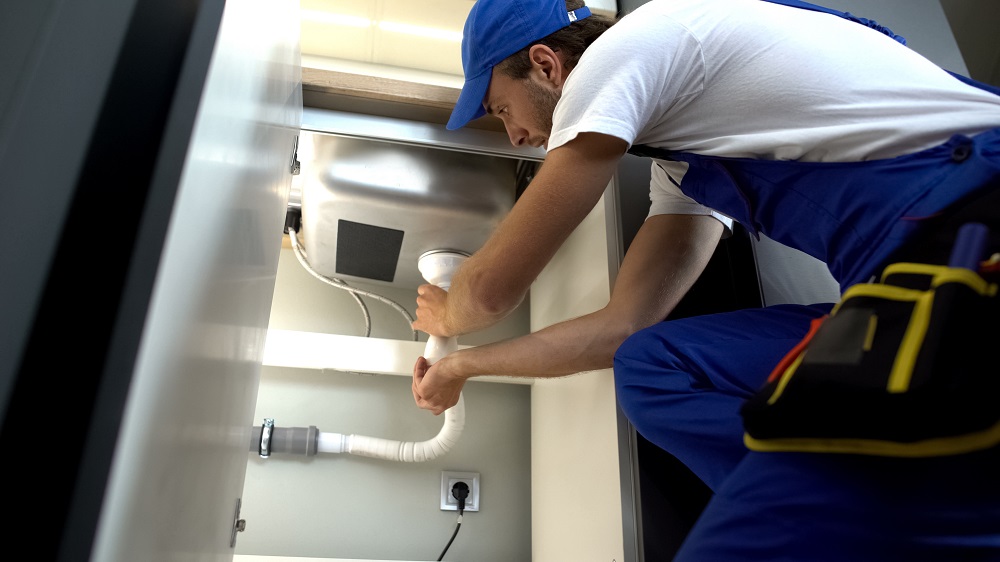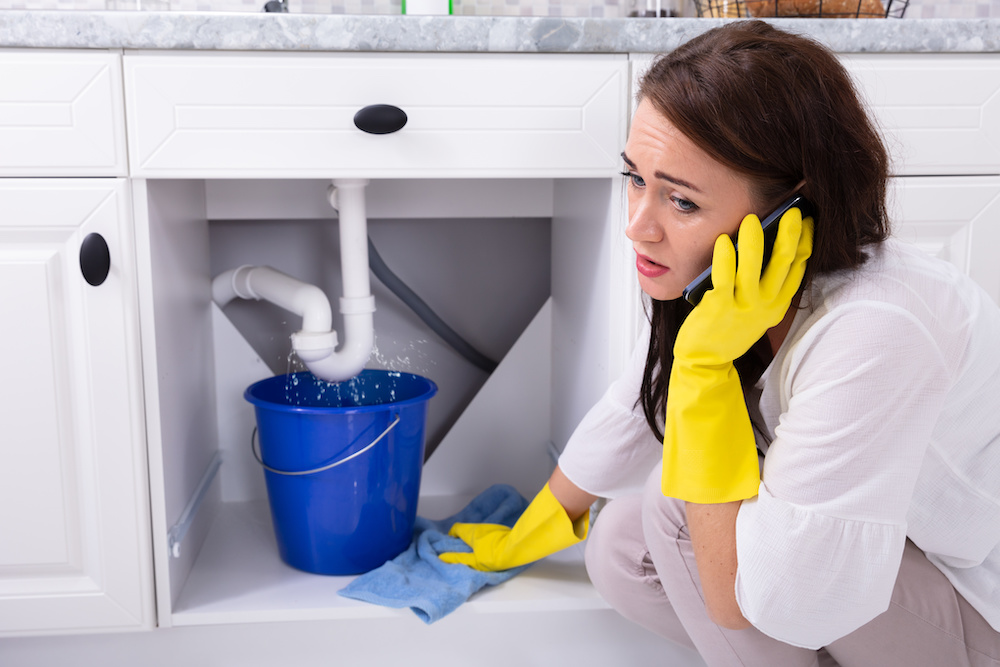Ways to Manage Urgent Plumbing Issues Before Expert Help Arrives
Ways to Manage Urgent Plumbing Issues Before Expert Help Arrives
Blog Article
The publisher is making a number of great observations relating to Plumbing Emergencies: Tips on What To Do Before in general in the article further down.

Plumbing emergencies can strike at any time, causing stress and possible damage to your home. Whether it's a burst pipeline, a stopped up drain, or a dripping faucet, recognizing how to take care of the situation till a professional plumber shows up can save you from additional complications. This short article gives vital emergency situation plumbing ideas to aid you reduce damages and regain control during a pipes situation.
Turn Off the Supply Of Water
The first step in any type of pipes emergency situation is to shut off the water supply. For local concerns, such as a leaking tap or toilet, shut off the valve near the component. In the case of a significant leakage or burst pipeline, locate your home's primary water shut-off valve and transform it off right away. Recognizing the area of these shutoffs beforehand can conserve important time throughout an emergency situation.
Address Small Leakages with Temporary Repairs
Small leakages can promptly become significant issues if left unattended. Use these momentary fixes till expert aid shows up:
While these solutions aren't long-term, they can assist lessen water loss and damage.
Unclog Drains Securely
A clogged up drainpipe can be an irritating and unpleasant problem. Here's how to tackle it:
If these techniques do not function, prevent using too much pressure, as it might intensify the clog.
Take Care Of Overflowing Toilets
An overflowing toilet can create immediate chaos. Here's what you ought to do:
Shut down Your Water Heater
In specific emergencies, such as a burst pipe, it's a good idea to turn off your water heater. This avoids overheating or damage to the device when water quits streaming. Shut off the power supply to the water heater (electrical or gas) and let it cool down to avoid potential dangers.
Briefly Stop a Burst Pipe
A ruptured pipeline can cause considerable water damages in minutes. To alleviate the problem:
Call a professional plumbing professional promptly to attend to the issue permanently.
Deal With Frozen Pipes Thoroughly
In colder climates, icy pipelines are an usual emergency situation. If you believe an icy pipe:
Prevent More Damage
Taking quick activity to lessen damage can conserve you time and money in the long run. Here's just how:
. Have an Emergency Pipes Kit
Prepare a standard plumbing emergency situation set to take care of minor concerns effectively. Your package should consist of:
Having these tools accessible can make a substantial difference in your capacity to handle emergency situations.
Know When to Call an Expert.
While quick fixes can aid briefly, particular plumbing concerns call for immediate expert focus. Call a plumbing technician if:.
Immediately contacting an expert guarantees the problem is resolved properly and stops more complications.
Final thought.
Pipes emergency situations can be overwhelming, however with the appropriate knowledge and tools, you can handle the scenario effectively up until assistance gets here. By turning off the water supply, dealing with small leaks, and using short-term repairs, you can reduce damage and keep your home safe. Keep in mind, these suggestions are temporary solutions; always consult an accredited plumbing professional to manage the source of the problem. Prep work and fast thinking are your best allies in any type of plumbing emergency.
8 Helpful Tips for Managing Plumbing Emergencies at Home
If your plumbing system hasn’t failed once, wait for it because almost everyone has a story to tell. Sometimes, it could be simple emergencies such as a leaking pipe, a blocked cistern, or even a big burst pipe. In situations like this, you need to have some handy tips to save you some money and from possible damages.
Take care of minor issues early.
Sometimes, you could have avoided an emergency by taking proactive measures while it was still early. Some major plumbing emergencies can be a result of an ignored minor issue. We recommend that you have items like plumbing tapes and other related items. A plumbing tape can allow you to manage minor leaks before the plumber arrives.
Cut off the water supply.
This tip is essential in almost any type of leakage problem. For problems like minor leakages in the toilet or kitchen, turn off the supply that takes water to the affected pipes. If the leakage is a major pipe, you must shut off the supply valve to the entire building. This will help you avoid flooding your home and neighbors if you share a flat.
Know your plumbing system
Folks typically move into a new apartment without understanding the water supply around the building. This can prove disastrous if a water emergency arises and the plumber is far away. The previous tip will prove useless if you don’t practice this one. More importantly, know where your water shut-off valve is located – you’ll need that knowledge to prevent potential home floods.
Have some common handy tools
There are lots of plumbing emergencies that you can handle without hiring a plumber. That’s why you must keep some tools available always. Some tools that you can use to fix simple plumbing emergencies easily include plumbing tapes, screwdrivers, thread seal tapes, plungers, pliers, tape measures, and rubber gloves.
Insulate your pipes from cold
You’ll save yourself from many plumbing expenses if you protect your water pipes from the cold. This is because of the harmful effects that cold weather can have on your pipes. During winter, your pipes can burst from being overly expected to freezing temperatures. So, make sure insulators are there to keep the pipes working correctly.
Avoid practices that will clog your toilet.
Many people indulge in practices that can damage the plumbing system of the entire building. One of these is when they use their toilet to dispose-off garbage. They flush all kinds of things, such as paper towels, bandages, hairs, female sanitary products, etc., down the toilet. This will block your toilet in the long run, incurring unnecessary expenditures. Dump such waste in the trash instead.
Check your dials regularly.
Sometimes, there could be leakages in your home without noticing them in time. So, constantly monitor your water meter dial. If the dial is reading when there is nobody using water, this is an indicator that there is leaking. Check for leaks immediately. Call a plumber as soon as possible if you can’t find any.
https://www.constructionplacements.com/8-helpful-tips-for-managing-plumbing-emergencies-at-home/

As a serious reader on Expert Tips for Managing a Plumbing Emergency Until Help Arrives, I think sharing that excerpt was worthwhile. Sharing is good. You never know, you will be doing someone a favor. Bless you for your time. Return soon.
This Site Report this page